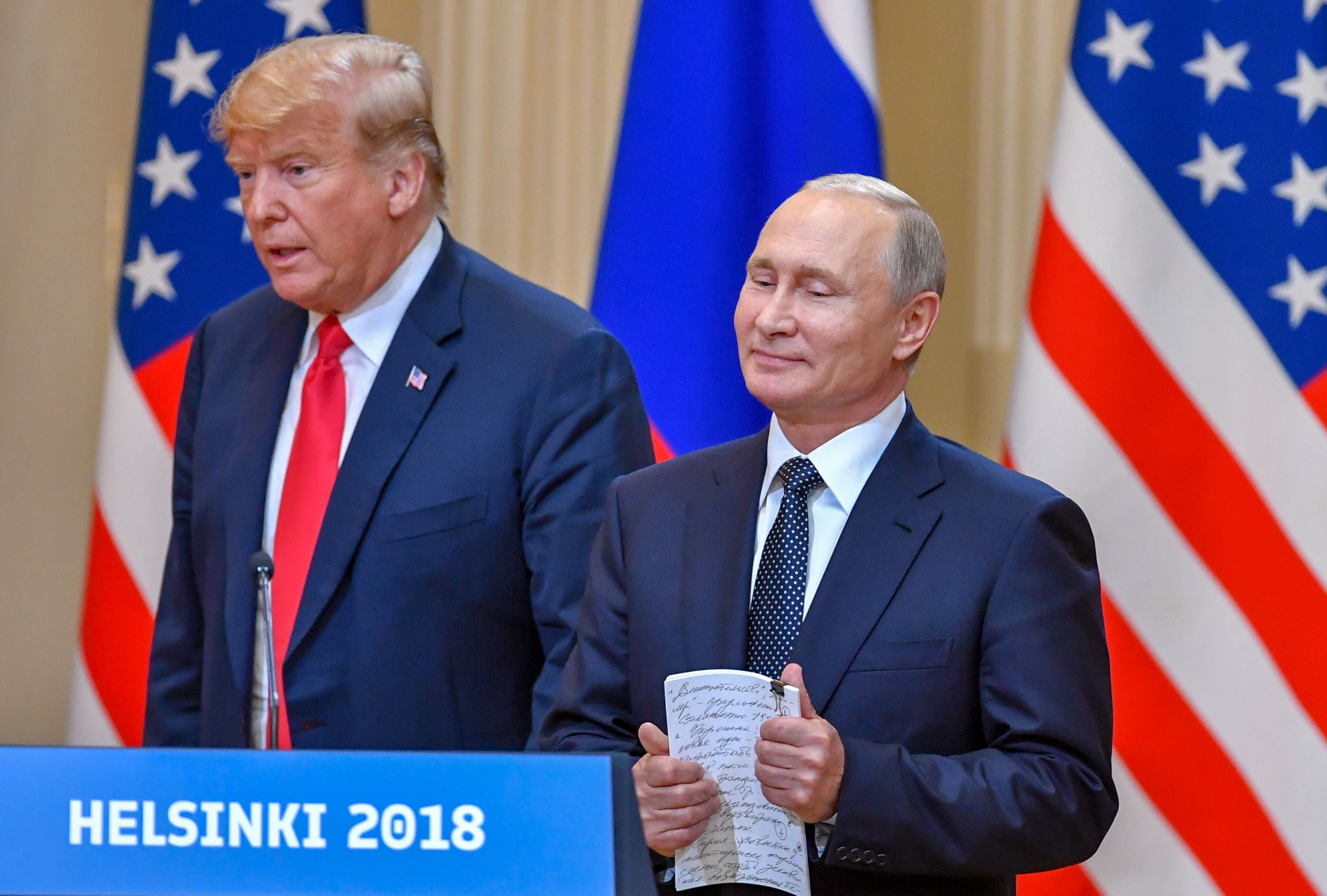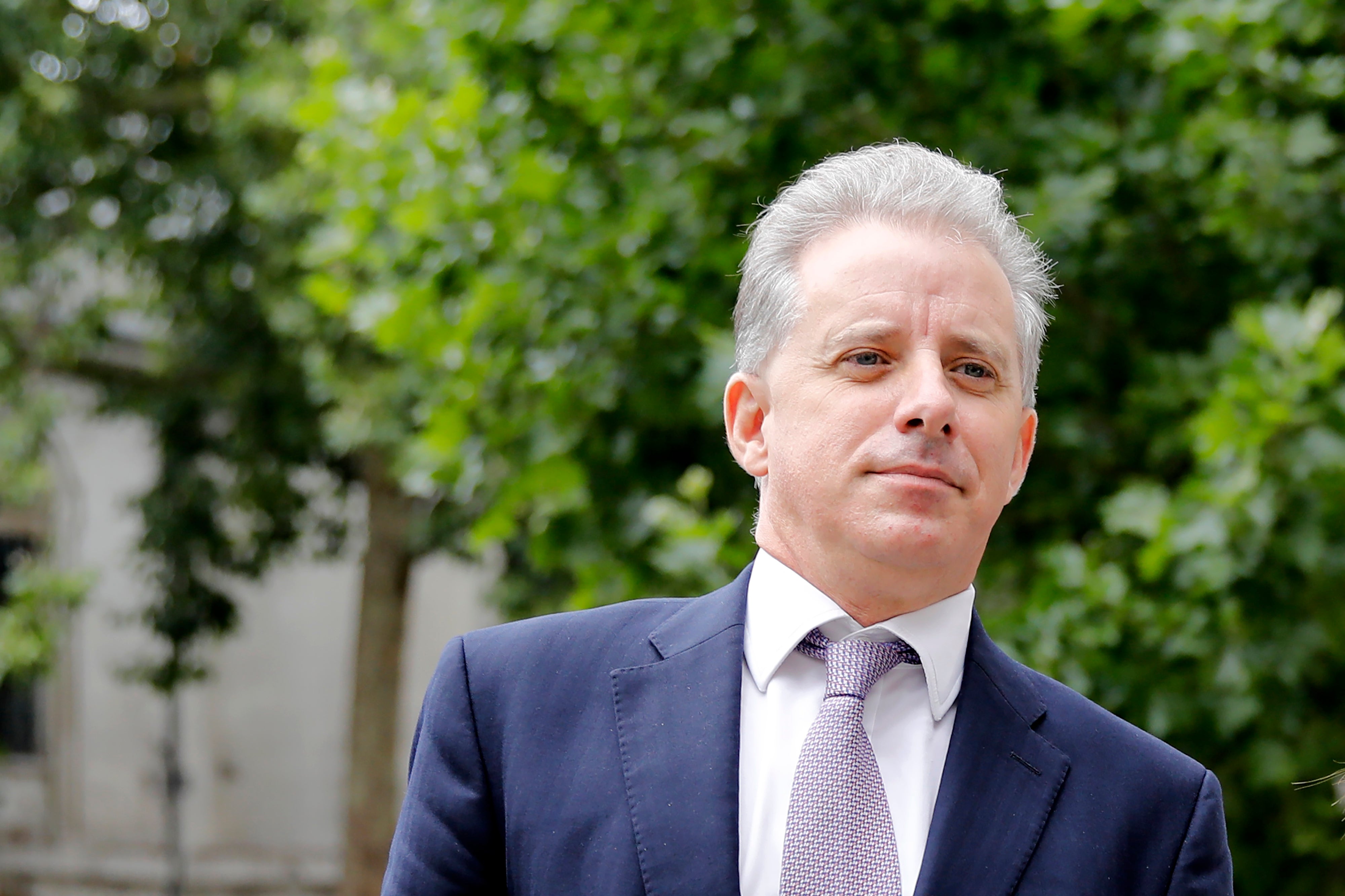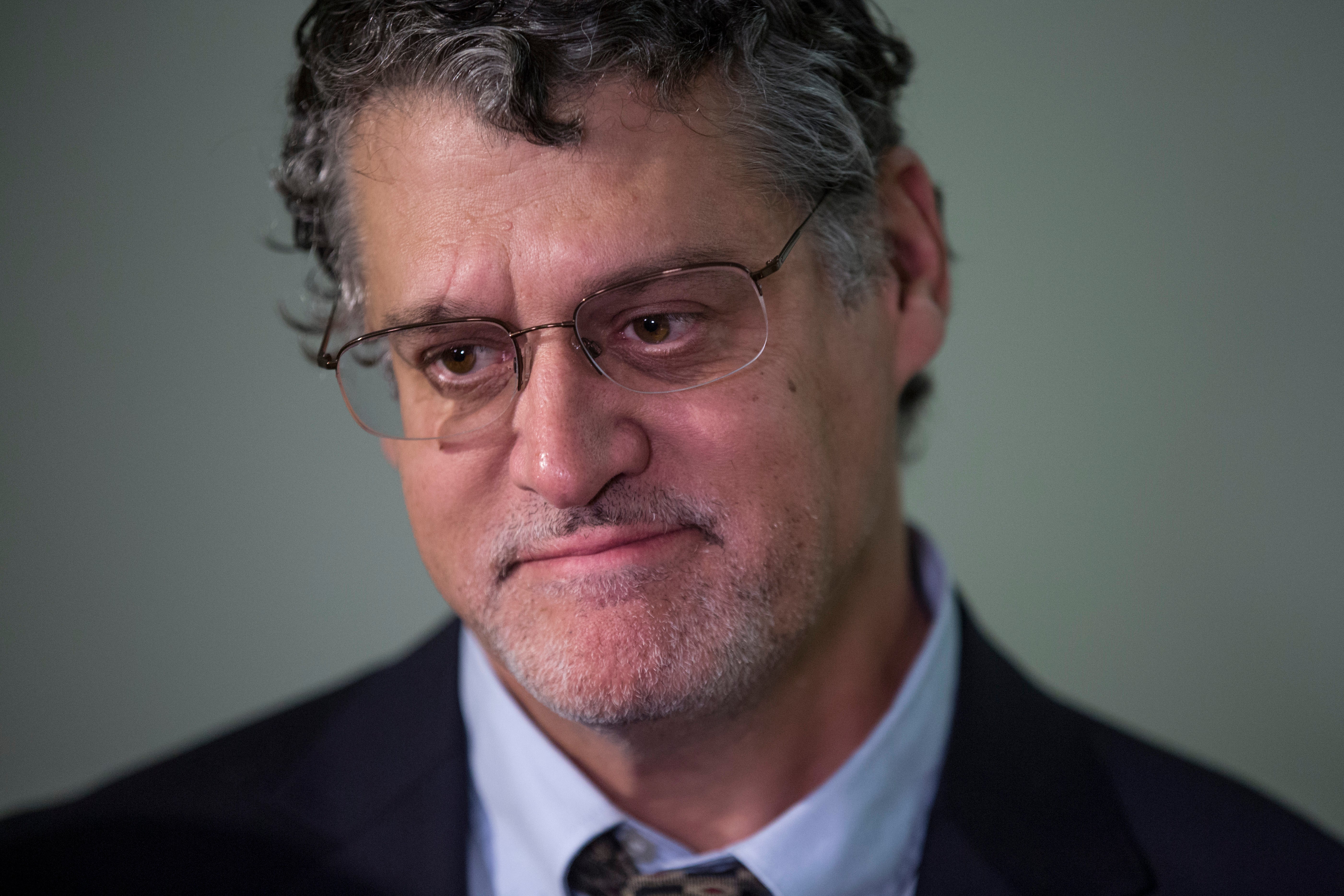The ‘disturbing’ truth about corporate intelligence, Christoper Steele and his ‘dossier’ about Donald Trump and Russia
World of private intelligence has been utterly transformed, author Barry Meir tells Andrew Buncombe


In the months immediately before and after the US election of 2016, word was going round a small circle of people in Washington DC about extraordinary allegations being made about Donald Trump.
Among the accusations being shared with a small group of reporters was that the former reality TV star had deep ties to the Russian state, which had been seeking to influence the election in his favour. It was alleged Russia had compromising material about Trump – kompromat – among it a video of the soon-to-be-sworn in president engaging in sex acts with prostitutes in a Moscow hotel room in 2013, and having them urinate on a bed where Barack Obama had once slept.
After Trump defeated Hillary Clinton in the presidential race that November, Obama and Trump were briefed about the accusations by the intelligence services; Trump described the claims as “phoney” and said he was the victim of fake news.
Shortly afterwards, it would emerge the claims had been collated by Christopher Steele, a former MI6 officer and Russia specialist, who had been sub-contracted by a corporate intelligence organisation, which had been hired to dig up opposition research on Trump. They had initially been hired by a billionaire called Paul Singer, a supporter of Marco Rubio, to try and stop Trump winning the Republican primary, but then by the Democratic National Committee, once Trump had become the GOP candidate.
The individuals pitching the assertions to journalists were two former Wall Street Journal reporters, Glenn Simpson and Peter Fritsch, who had established Fusion GPS in 2011. Its website says it “provides premium research, strategic intelligence, and due diligence services to corporations, law firms, and investors worldwide”.
Now the pair of private intelligence researchers, along with the British-ex spook and the claims in what became known as the Steele Dossier, are being talked about once again, because of a new book that digs into the strong but often unacknowledged links between corporate intelligence companies such as Fusion GPS and the mainstream media.
“There’s this booming business out there that’s invading our privacy, profiting from deception and manipulating the news, and it’s one we have to be on guard against,” writes Barry Meier, a former investigative reporter for the New York Times and author of Spooked: The Trump Dossier, Black Cube, and the Rise of Private Spies.
He says there was a time when private investigators were happy to hide in the shadows.
“Now, politicians were hiring them to dig up dirt on opponents, companies were employing them to torpedo investigations into their activities by authorities or journalists, and dictators using them as freelance intelligence agents.”
Some of the assertions made by Fusion and Steele were certainly true; it seems clear Russia sought to interfere in the US election in favour of Donald Trump.

Yet America intelligence had first been informed of that effort, not by Steele or Fusion, but by Australia, whose top diplomat in London in May 2016 found himself sitting drinking with a young man called George Papadopoulos, later identified as an adviser to the Trump campaign. Papadolous told Australian Ambassador Alexander Downer that he had been informed by an intermediary that Moscow had “dirt” on Hillary Clinton.
The information was not immediately passed to DC, but when it was the FBI began, in July 2016, a highly secret probe into Russia’s alleged attempts to disrupt the election and whether any of President Trump’s associates conspired. (Papadopoulos would later plead guilty to lying to the FBI and was sentence to two weeks in jail.)
However the most eye-catching claims in the material floated in front of journalists and then eventually first published by BuzzFeed News in January 2017, appear unproven at best. No evidence has been produced for the “pee tape” claim, and another assertion, that Trump’s personal lawyer, Michael Cohen, met with Russian agents in Prague in August 2016 has been debunked, not least by the two-year probe by former FBI Director Robert Mueller.
The Mueller report, which did find evidence of Russian interference in a “sweeping and systematic fashion”, also dismissed claims that campaign adviser Carter Page met with Russian officials in Moscow in the summer of 2016.
As to the claims of collusion with Russia, Mueller said he investigated many allegations, but could not find evidence of a crime. At the same time, he made clear his report did not exonerate the then president of interfering in his inquiry, as Trump frequently would claim.
Many believe the decision not to charge Trump was a political act taken by the president’s attorney general, Bill Barr, rather than a legal calculation by Mueller.
Indeed, as Trump boasted of “total exoneration”, Mueller, the special counsel appointed after the firing of FBI Director James Comey, made an astonishing televised statement to make clear the limitations he was working under.
“If we had had confidence that the president clearly did not commit a crime, we would have said so,” Mueller said. “Charging the president with a crime was therefore not an option we could consider.”
Meier tells The Independent he was inspired to write the book because so much in the private intelligence industry was changing, and its increasing influence often playing out in the public eye.
And as media organisations across the US were cutting back on staff and losing jobs, many of those entering the world of private intelligence were former reporters.
“When I started on this book there were a number of big stories unfolding at that time. One of them was the Steele Dossier, another was the Harvey Weinstein case, [there was another story] involving this medical company called Theranos,” he said referring to a California company, whose founder and CEO, Elizabeth Holmes, has been charged with fraud. She has pleaded not guilty.
“And when I stepped back, and looked at these three different situations as as well as others, I noticed the thing that connected them was the involvement of private intelligence.”
Meier, who has twice won the George Polk Award for International Reporting, writes in his book that private intelligence has “boomed into a renegade, billion-dollar industry”, that increasingly invading people’s privacy, “profiting from deception and manipulating the news”.
He claims an industry worth billions of dollars annually has been transformed in recent years as a result of technological advances that have permitted them to monitor people, hack their cellphones and emails and carry out round the clock surveillance if necessary.
And he says the money made by these people working for major corporations across the world comes not by exposing the truth “but by papering it over or concealing it”. He claims the private operators often make use of methods that are “illegal, unethical, or just plain unsavoury”.
Meier is often scathing of Simpson and Fritsch, who where themselves previously journalists who specialised in investigative work. When Simpson announced he was leaving the Journal to set up a private intelligence agency with colleague Sue Schmidt – the first firm was called SNS Global – he suggested their work would continue in the spirit of investigative journalism.
He told colleagues he had found “a void in the corporate intelligence industry and an opportunity to fill it with a different type of firm — one that embraced the values and ethical standards of journalism while working for private clients”.
Part of Meier’s book also covers the action of the Israel-based intelligence firm, Black Cube, whose employees triggered controversy after being hired by the likes of Harvey Weinstein, to get in the way and allegedly intimidate reporters who were digging into allegations of sexual assault.
In 2020, Weinstein was found guilty of two counts of rape and sentenced to 23 years in jail.
Much of the book, however, is concerned with Fusion, even though Simpson and Fritsch, and Steele, did not cooperate with it.
Meier claims had it not been for Fusion, nobody would have become aware of the information gathered over the course of some months by Steele, who was contracted in June 2016 to dig into Trump’s alleged Russia links.
Steele claimed he made use of high-level contacts close to the government in Moscow. Meier points out the main source appears not have had such access and was often passing on what passed for gossip in Moscow circles.

He says Steele had not been to Russia for two decades.
“Absent efforts by Glenn Simpson and Christopher Steele to pull the strings of journalists it’s possible the public would have never learned about the dossier,” he says. He says the eventual release of the documents, whose contents were widely reported on by the media, including The Independent, “was a media clusterf*** of epic proportions”.
He says it was the consequence of the long-metastasising relationship between private spies and journalists.
Fusion declined to answer questions directly from The Independent, but instead pointed to a blog post Simpson and Fritsch had posted on Medium, to respond to Meier’s claims.
They say Meier had denounced his fellow journalists with “great sanctimony for considering information from private research companies like ours”.
They then suggest a piece Meier had published in the New York Times this month, based on his book, only received its prominent position because his wife, Ellen Pollock, edits the weekend business section where it appeared. They also claim the newspaper did not seek their comment before publication.
The most “salient” omission, they claim, by Meier is that when he was still working for the Times, he had contacted them for help on stories “before, during and after the 2016 election”.
Including what they say are emails from Meier to them, they add: “Meier’s attack on us — and on reporters who consider information from private researchers — is disingenuous, hypocritical and profoundly ironic.”
Steele’s company Orbis Business Intelligence also rejected Meier’s claims. In a statement, managing director Arthur Snell claimed the book was “riddled with basic factual errors and relied upon unreliable sources who knew little or nothing about our work”.
He claimed the main themes contained in the dossier, including that Russia was trying to influence the 2016 election in Trump’s favour, have proven true, and that when these discoveries were made “the findings were not known anywhere outside the intelligence community, and were largely unknown inside that community”.
Black Cube did not respond to inquiries.
In a statement, the New York Times said: “Barry Meier has written for the New York Times as a reporter or contributor for 32 years. When he contributes, Ellen Pollock is not involved in the editorial process.”
Asked about the assertions made by Fusion, Meier says he believes the company is trying to distract from the attention his book has brought on it and the intelligence industry.
Asked about Fusion’s claim that he had gone to the company seeking stories, he says some reporters from his paper had worked with it, but that his interactions with Fusion had been very limited. He says it had been Fusion who had been pitching stories to him and others.
Asked if he routinely obtained information from Fusion, he adds: “No, of course not. More importantly, I didn't know about the dossier until it became public. I didn't get stories from them.”
Meier concludes his book by arguing it is vital that society and the media stands up to the world of corporate intelligence.
He says: “Suing them, wherever and whenever possible, might help trim their sails.”
Join our commenting forum
Join thought-provoking conversations, follow other Independent readers and see their replies
Comments